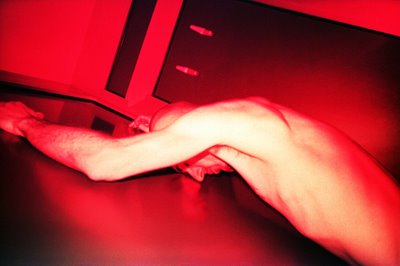 NOVA IGUACU, BRAZIL - For most, it’s a choice of the men’s room or the women’s. A Brazilian city is trying to give an option to those who don’t fit easily into either category.
NOVA IGUACU, BRAZIL - For most, it’s a choice of the men’s room or the women’s. A Brazilian city is trying to give an option to those who don’t fit easily into either category.A bill passed by the Nova Iguacu city council yesterday would require nightclubs, shopping centres, cinemas and large restaurants to provide a third type of bathroom for transvestites. Mayor Lindberg Farias will decide whether to make it a law.
“A lot of MPs didn’t want to deal with this issue, but it’s a serious problem in society,” said city Councilman Carlos Eduardo Moreira.
“It’s a way to put an end to prejudice.”
Moreira, a 32-year-old policeman on leave from the force, said he got the idea when dozens of transvestites showed up for a local samba show.
“It was a real problem. The women didn’t feel comfortable having them in the ladies’ room, and the men didn’t want them in their bathroom either,” said Moreira, who is married and the father of two children.
“I’m not doing this for my own benefit.”
He said the “alternative bathrooms” could also be used by men or women who didn’t mind sharing space with transvestites.
Moreira said there are nearly 28,000 transvestites in Nova Iguacu, a poor city of about 800,000 on the outskirts of Rio de Janeiro.
Moreira said many transvestites are reluctant to go out because there’s no bathroom for them. And he denied that the cost of building a third bathroom would be a big problem for restaurant or club owners.
“It requires an initial investment, but after that, the establishment will end up making more money because it will have a larger public. And transvestites like to spend,” he said.
The issue has divided gay groups; some feared it could segregate gays, while others said it recognised a problem within the gay community.
“At first we were against the law, but after some discussion we decided we had to support it because it addresses a real problem for a segment of the gay community,” said Eugenio Ibiapino dos Santos, a founder of the Pink Triangle Association, a gay group in Nova Iguacu.
“We see it as a way to open a discussion about civil rights.”
Brazil is generally more tolerant of homosexuality than other Latin American countries, but discrimination still exists.
A study conducted by the Candido Mendes University in Rio de Janeiro found that 60% of Rio’s homosexuals had met some type of harassment, and 17% said they had experienced physical violence.
from Ireland OnLine
I love Brazil! Very nice people, weather, places, etc. As many places in the world, discriminations still exists in Brazil.
ReplyDeleteThis is such a great resource that you are providing and you give it away for free. I love seeing blog that understand the value of providing a quality resource for free. Baton Rouge portable restrooms
ReplyDelete